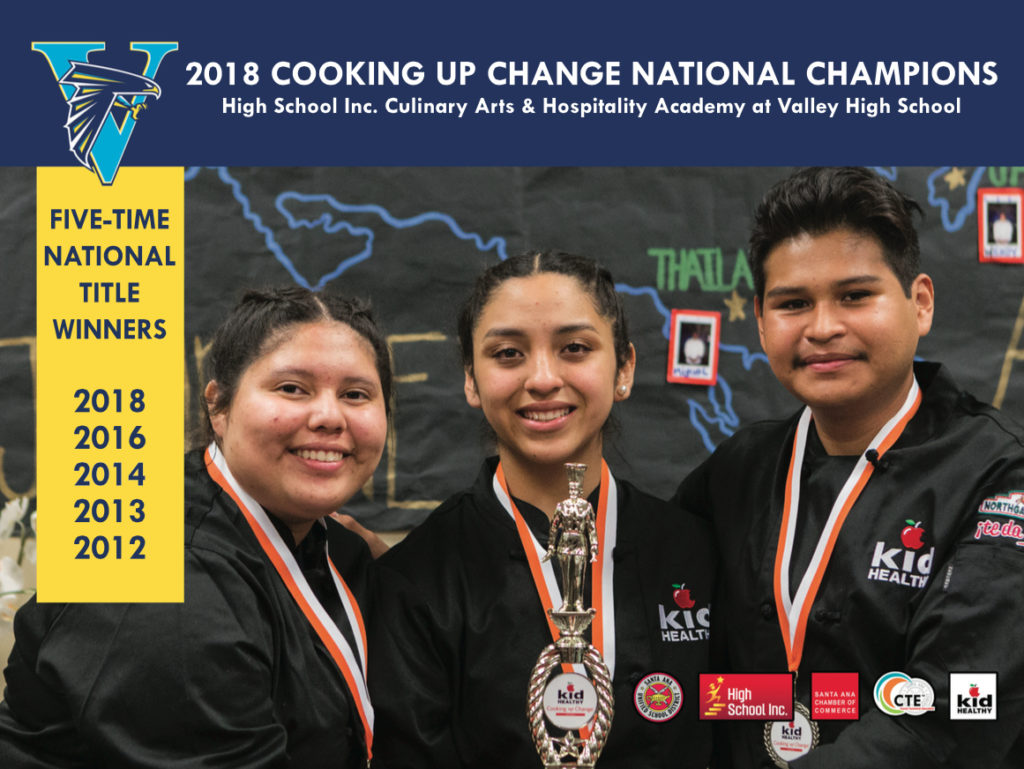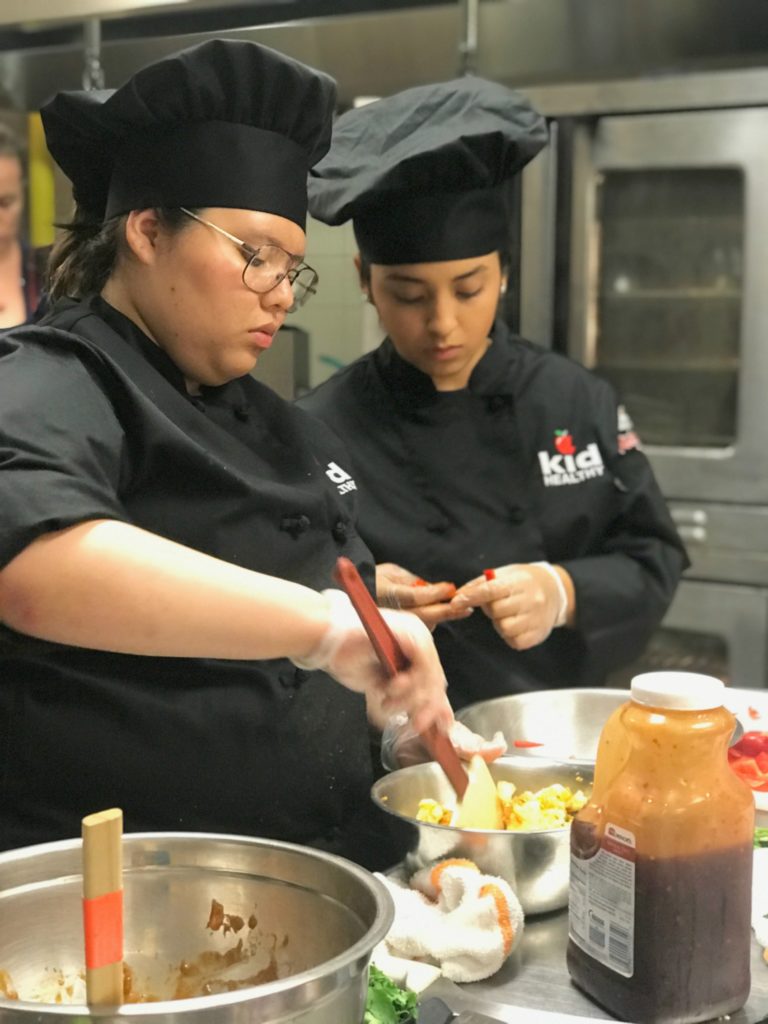For the fifth time in seven years, a team of student chefs from Santa Ana has earned first place in a national competition designed to promote tasty and nutritious school meals.
Wendy Castanon, Miguel Hernandez and Fernanda Nevarez of Valley High School took top honors in the Cooking Up Change National Finals in Washington, D.C. on June 11 after winning an earlier regional showdown in Anaheim.
 The trio is enrolled in the Valley High School Culinary Arts and Hospitality Academy supported by High School Inc., and we’re told they won over the judges with an Asian-inspired meal that included Chinese orange chicken and spicy Thai slaw.
The trio is enrolled in the Valley High School Culinary Arts and Hospitality Academy supported by High School Inc., and we’re told they won over the judges with an Asian-inspired meal that included Chinese orange chicken and spicy Thai slaw.
Valley’s High School Inc. Culinary Arts Academy teams also won this contest in 2016, 2014, 2013 and 2012. You can watch a video of the 2018 national awards presentation below.
“We’re beyond excited that our students have achieved the national title for an amazing fifth time,” said Tiffany Heremans, Valley High’s career technical education instructor and chef.
Organized by the nonprofit Healthy Schools Campaign, the Cooking up Change contest was launched in Chicago back in 2007 and has since expanded to 22 cities. Essentially, high school culinary arts students are challenged to develop great-tasting recipes that meet the requirements of the national school meal program.
Based on the rules of the competition, each team must create an original, three-course lunch that includes a grain, meat — or a meat alternative — fruit and a vegetable.

And here’s where it gets tricky: Each lunch must land between 500 and 600 calories, adhere to sodium limits, cost no more than $1.40 per person, and be easy to replicate on a large scale. Entries are judged on originality, taste, texture and appearance.
While in D.C., the competing culinary students were able to meet with lawmakers to share their experiences and talk about the importance of healthy school meals. During Valley’s Cooking Up Change presentation, the students spoke specifically about food waste on school campuses, noting that in California about 564,000 tons of school food are scrapped each year.
Addressing the issue is one thing. But as chefs, they’re also doing something about it, according to Principal Hector Galicia.
“These students are doing much more than taking part in a cooking competition,” he said, “they are creating creative solutions to the political debate over school food.”
